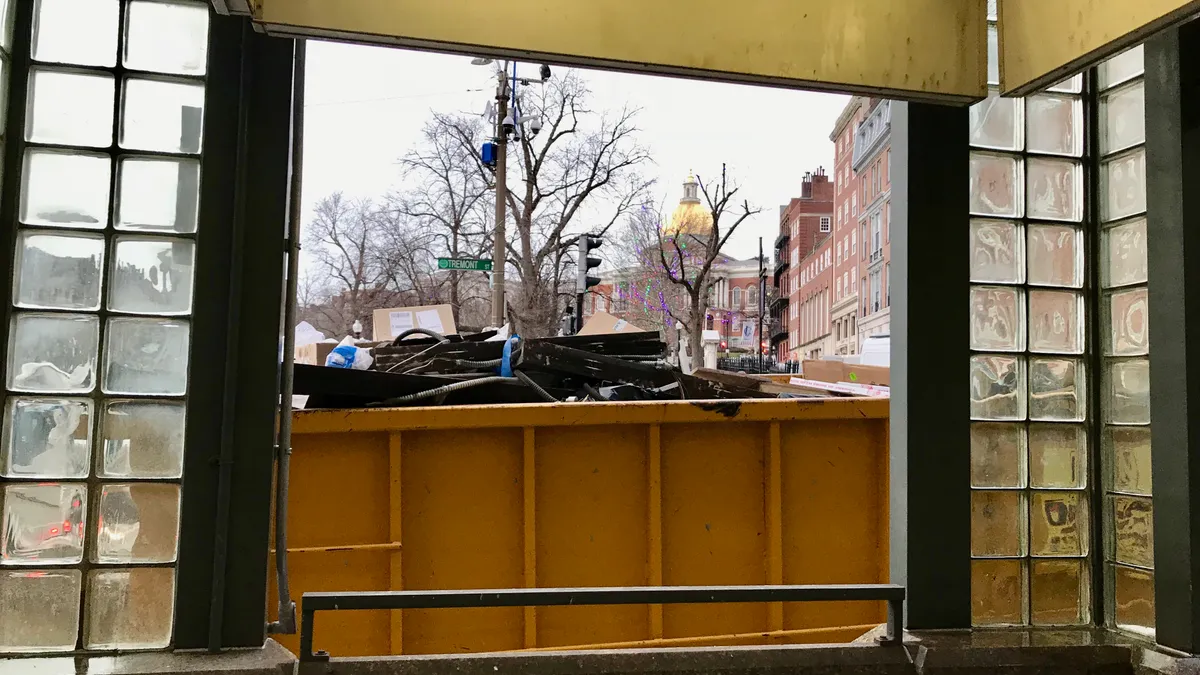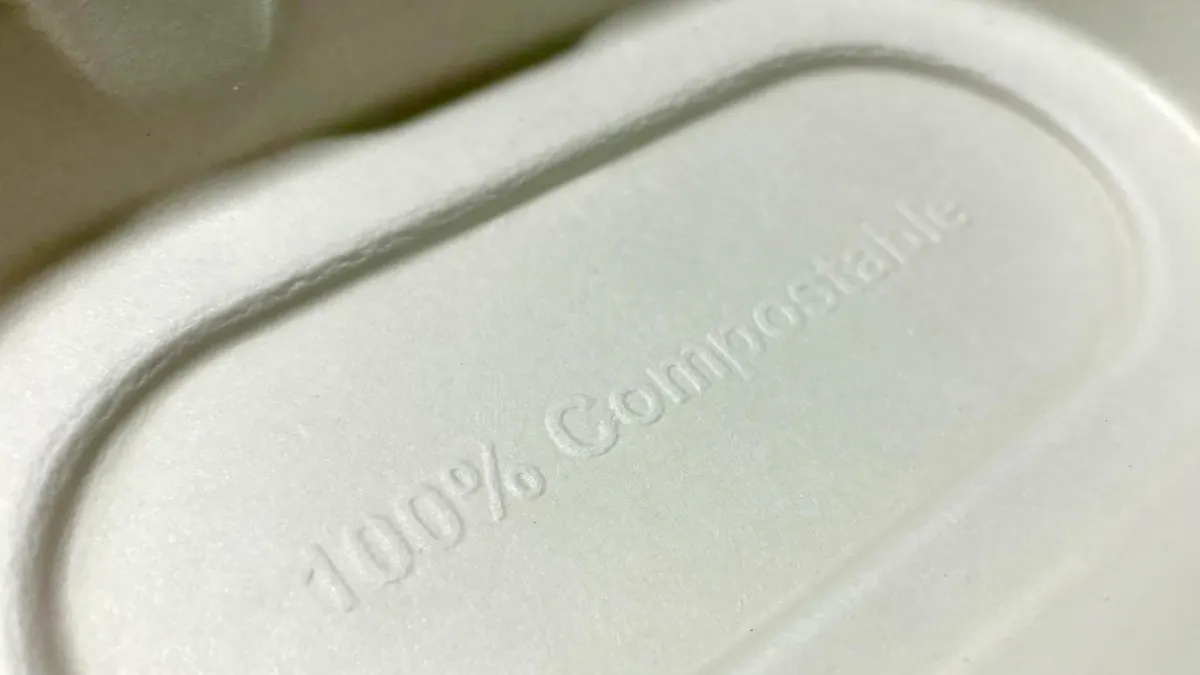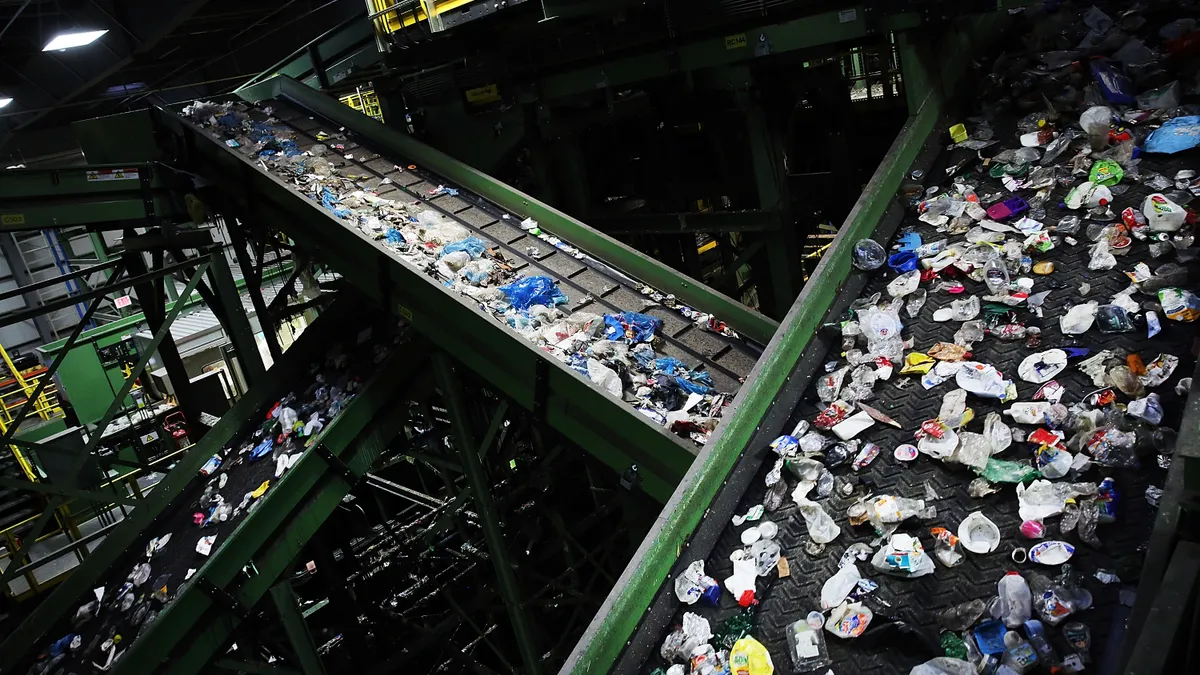Two bills that would alter statewide recycling programs have been introduced in the Washington state legislature in response to market changes spurred by China's scrap import policies.
Getting rid of glass
One bill, HB 1795, aims to streamline municipal curbside recycling programs by providing an extensive, uniform list of materials that would be accepted in recycling programs throughout the state. A small number of other states have begun to establish their own lists, but the practice is still far from widespread.
This concept has the backing of the Washington Refuse and Recycling Association, which released its own recommended list of materials last year in response to post-China ban market effects.
"The ban presents an opportunity to review curbside recycling programs and improve their quality," the association said in a statement.
Items that still have strong markets — including newspaper, corrugated cardboard, tin and aluminum cans, PET bottles and HDPE jugs — made the recyclable list. The major sticking point is the excluded items list; tougher items such beverage cartons, shredded paper and #3-7 plastics are on that list — but so are all types of glass.
Glass costs more to transport than other single-stream recyclables due to its relative weight, and it's also considered contamination in many single-stream programs because of a propensity to break and affect other materials — problems that have become especially acute in the past couple of years.
However, recyclers maintain that glass does have healthy markets as long as it's isolated. Recently, there has been a move to create new source-separated glass recycling programs as seen in Moore County, North Carolina, parts of Connecticut and other areas.
Numerous organizations and recyclers — including Strategic Materials, which revived the recycling program in Moore County — have written letters to Washington legislators criticizing the bill's exclusion of glass. Some recently attended a House Environment and Energy Committee hearing to voice their opposition.
"Prohibiting glass from the curbside recycling program would have a devastating impact on the state's ability to recycle glass," Matthew Zwicker, western region supply manager for Strategic Materials, told lawmakers. The material's exclusion, he asserted, would affect not just glass recyclers, but also manufacturers who use processed glass for feedstock.
While the bill is included among those prompted by China's ban, opponents point out that glass recycling may not fit particularly well under this umbrella. "All aspects of glass processing and recycling take place domestically ... nothing overseas," Zwicker said.
Opponents argue that there are different recycling markets in different regions — even within a single state — and that mandating which items are excluded could negatively affect areas that have viable processing facilities and markets for glass.
The Container Recycling Institute (CRI) applauds the bill for emphasizing that diversion is not the same as recycling, and that contamination rates must be dramatically reduced. However, it criticizes the removal of glass from single-stream collection because "no other collection systems have been proposed as alternatives... [G]iving up on glass recycling altogether is not an environmentally or economically sound solution to this problem." Instead, CRI recommends a container deposit law and dual- or multi-stream collection to keep glass separate and boost quality of all materials.
While WRRA supports removing glass from the list of materials picked up curbside, it suggests a possible compromise: "For those jurisdictions that would like to offer additional recovery options, it might be possible to establish drop off options at depots for additional items."
Bill opponents also criticize the legislative element requiring cities and counties to conduct a lifecycle analysis, which Zwicker described as "subjective in nature... Legislating to determine the viability of a single recyclable would be imprudent." In addition, Strategic Materials disagrees with the provision to create a working group to develop recommendations for recycled materials unless it includes representatives from various steps of the recycling supply chain.
If HB 1795 passes, municipalities will be required to update their recycling plans by Jan. 1, 2020.
Examining EPR
The other bill, HB 1204, seeks to implement an extended producer responsibility program for plastic packaging. "By definition, this is not a simple little bill. But I think it's important that we start having this conversation," said Rep. Strom Peterson at the hearing.
The bill would require municipalities, product manufacturers and haulers to devise a packaging stewardship program for plastic packaging. Under the program – as explained by Laurie Davies, program manager for solid waste at the Washington Department of Ecology – the "manufacturer pays for collection and recycling while researching and producing materials that are more easily managed" and participates in market development, recycled content use and litter cleanup.
According to Davies, the bill addresses two primary concerns: the amount of plastic litter making its way into the environment and "difficulties companies are experiencing in recycling these plastics."
"Traditional markets that have accepted and recycled plastics have closed their doors due to low quality of the material and contamination issues," she said, observing that without viable markets, many recyclers in Washington are no longer accepting many types of plastics and disposing of the ones they do accept.
"Under the current system, the onus for recycling and taking care of these plastics that are almost overwhelming in our lives, all of that is on the end user, all of that is on you and me," said Rep. Peterson. "What this bill wants to do is start the conversation and move that responsibility upstream."
The EPR concept is far more popular outside of the U.S. — especially in Europe, where the UK government included a plastic packaging EPR element in its revised waste strategy released late last year. While more U.S. states are examining EPR strategies — especially for plastics and electronic scrap — it remains a relatively unpopular model domestically, as demonstrated by last year's rejection of an EPR plan by a working group created by Connecticut's General Assembly.
This opposition is largely driven by product manufacturers and service providers. Waste Management, Republic Services, Waste Connections and Johnson & Johnson were among those that testified against HB 1204 during the hearing.
If HB 1204 passes, EPR programs would have to be in place by January 2022.

















